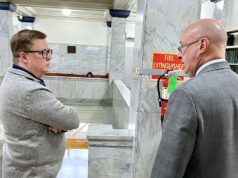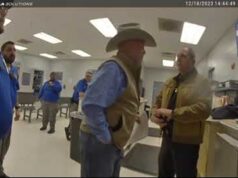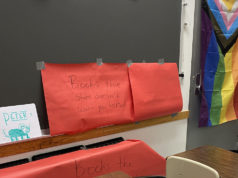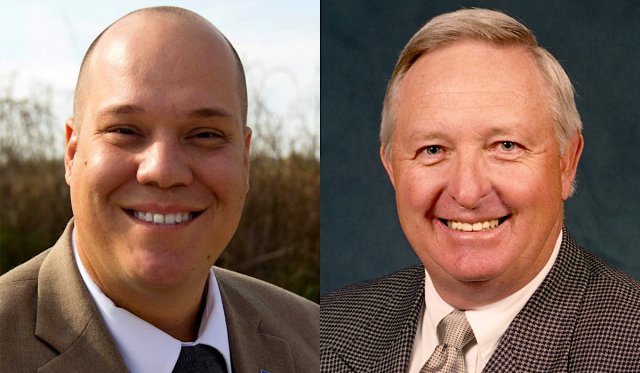

As he pondered his unexpected loss to a Republican challenger who ran no campaign in November 2018, then-House Minority Leader Steve Kouplen broke out country vernacular to describe his confusion: “It’s got me bumfuzzled.”
Two years later, Kouplen is attempting to bumfuzzle Rep. Logan Phillips (R-Mounds) and win back eastern Oklahoma’s House District 24, a sprawling district that runs almost 90 miles from the south edge of Mounds to the Canadian River south of Holdenville.
“It’s 2,000 square miles of completely different cultures from the top to the bottom, and a whole lot of islands completely isolated,” Phillips said, noting HD 24’s historically all-Black towns and numerous tribal headquarters within the Muscogee (Creek) Nation Reservation. “I think the challenge it poses as a representative is that, to be able to represent, you have to get to the people. It’s a tremendous amount of windshield time, and it’s stressful. Some of my counterparts can cover their whole districts in four miles.”
Kouplen knows the district well and noted that he and Phillips both see the Tulsa suburbs moving south toward Mounds and Beggs.
“We’re on the farther northern end of the district,” Kouplen said. “It becomes more of a rural area (south). The main industries in the district are agriculture and energy, and both of those are seeing rather difficult times right now.”
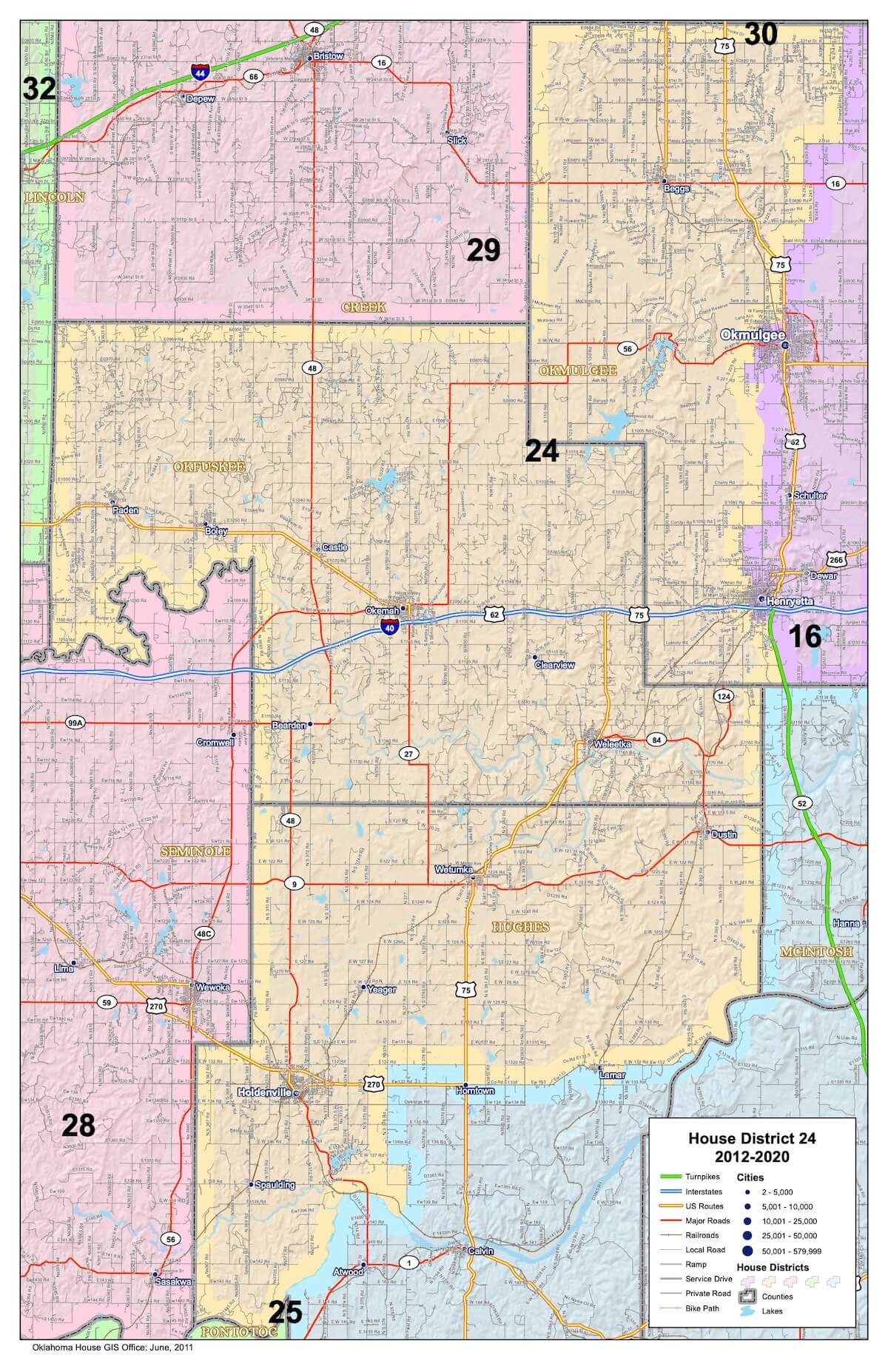
Negative campaigning? Not in HD 24
Contrary to what one finds in contentious 2020 races for higher offices, Phillips and Kouplen like each other just fine. Kouplen, 69, said he decided to run again because he simply missed serving the residents of HD 24, many of whom he said have still called him over the past two years when they have questions.
“Originally when I got defeated, the first few months it wasn’t that big of a deal. But I got to the point where I miss it,” Kouplen said. “I have people call me and ask me questions about what they need to do about legislative issues. I say, ‘Well, I’ll tell you what to do, but I’m not the representative anymore.’ And they’d say, ‘You’re not?'”
Phillips, 37, said he has worked hard for the past two years to meet constituents and make up ground after not campaigning in 2018. (His plan had been to file for HD 24, gain some name recognition by being on the ballot and then run in 2020 when Kouplen would have been prevented from seeking re-election because of term limits.)
“My biggest failure from 2018 was that I went in without the base knowledge everyone else had from campaigning,” Phillips said. “There was no down time or easy period over the last two years for me.”
But while Phillips believes HD 24 voters should select him again, he had nothing but positive words to say about Kouplen.
“I believe I’m the better person for the job, mostly because I have an understanding of the future issues of the state and will have the ability to stay in office longer and deal with them,” Phillips said. “Mr. Kouplen is a rancher and a common personality of many people out here in my district. I think he’s a nice guy. I’m not going to say anything negative about Mr. Kouplen. I think he served and served well, I just don’t think he’s the candidate to move forward for the needs of rural Oklahoma.”
Kouplen argues that his experience makes him the better candidate for rural Oklahoma. He is former president of the Oklahoma Farm Bureau, a former board member for a rural electric cooperative and a former board member for a rural water district.
“The industries that are in the area that have the problems, I’ve got a relatively good background and understand the issues they face,” Kouplen said.
Nonetheless, he also had nothing but positive comments about Phillips.
“Other than listening to what some of the constituents have said, as far as I know in meeting him he seems like a fine individual. I don’t have a problem with him,” Kouplen said. “I haven’t disparaged Rep. Phillips, and I don’t plan on it. I am simply trying to emphasize the experience I have for the district. (…) In the forums, he will generally agree with the things I have proposed. I don’t have any huge complaints about what he’s done.”
Internet issues
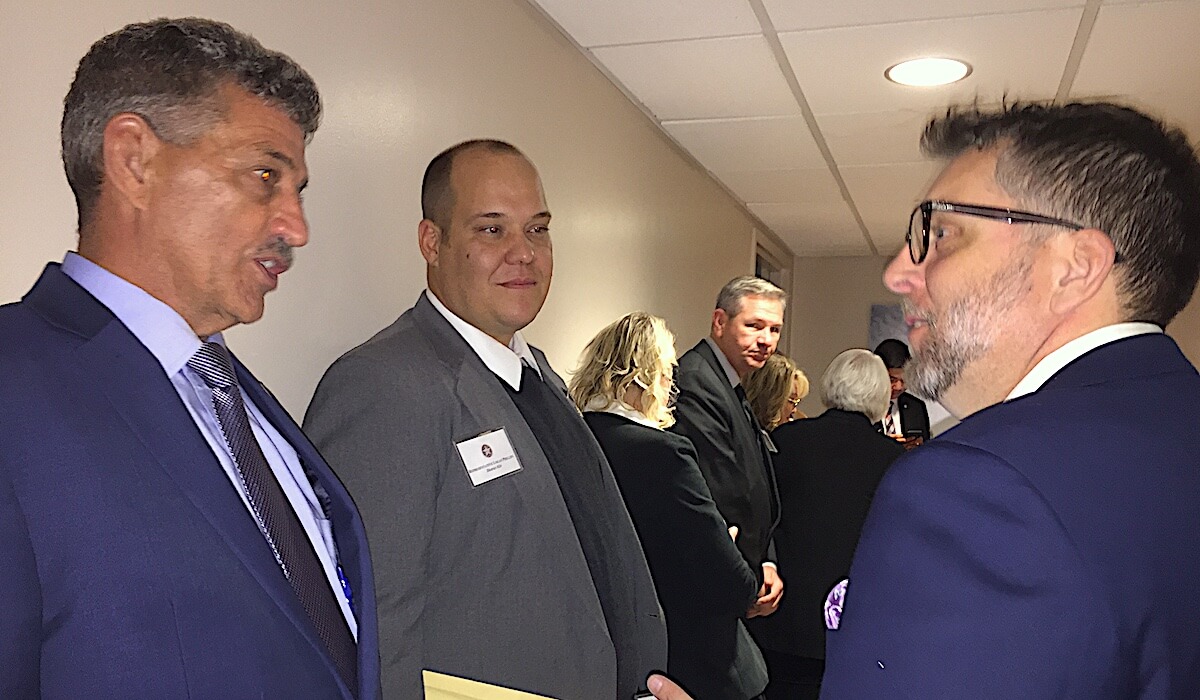
What Phillips has done in the Legislature, however, has been tied to controversy. That’s not to say he has made mistakes, but Phillips’ two primary pieces of legislation drew some ire from various interest groups.
“I ran bills with Democrats and I ran bills with Republicans, and I ran things that would help my district across the board,” Phillips said. “Out of everything I accomplished for two years, I’d say the broadband bill is my shining star. It impacts everything.”
HB 4018, for which House Speaker Charles McCall (R-Atoka) was the lead author, created a new Rural Broadband Expansion Council, but its inclusion of a direction that “the council shall give emphasis to maintaining the viability of the Oklahoma Universal Service Fund” frustrated some opponents of the USF.
The issue also added fuel to a dispute between members of Gov. Kevin Stitt’s cabinet and legislative leaders. Still, Phillips said his goal is simply to improve internet infrastructure and access for rural communities.
“It should, if my theory proves through, help bring people back to rural communities,” Phillips said.
His other most notable bills dealt with the issue of data privacy. While only one of the three measures ever had full language filed and passed a House committee, Phillips said the topic caught the attention of national and multinational companies.
“If you’re collecting private data from a private citizen, (I proposed that) you have to tell them that you’re doing it. When it finally came to light that that’s what [those bills] did, I got called a variety of different names, none of them polite,” Phillips said. “Lobbyists that I’d never seen before came to the Capitol to tell me I was trying to be California. It caused a ruckus from left to right across the entire State Capitol. I still believe I was in the right.”
Phillips, whose background is in information technology and digital education, pointed to a recent bipartisan House interim study as evidence that the topic remains important.
They’re about to open up a giant can of worms with digital privacy rights, which frankly needs to be addressed,” he said. “It’s going to be a fight.”
Kouplen talked less about internet issues and mores about traditional infrastructure, such as roads, bridges and water service.
“Rural roads is what needs more funding in this state,” Kouplen said, promoting a proposal to remove a cap recently placed on the County Improvements for Roads and Bridges program. “We’ve done a pretty good job dealing with the bridges on the main highways and the state highways, but the rural roads are the ones that need more funding.”
Kouplen said he was proud of his role in passing the historic revenue bill that funded major hikes in education dollars, but he said schools still need more funding.
“I think education is still a huge issue in rural Oklahoma, as well as health care,” Kouplen said. “I think the passage of Medicaid expansion will be a great benefit to rural Oklahoma.”
Phillips also said he believes lawmakers will need to continue to focus on education issues, especially as more families choose virtual learning options. He said the state’s education funding equalization formula may need to be adjusted depending on the impact of the distance learning trend.
Kouplen, whose son serves as Gov. Kevin Stitt’s secretary of commerce and workforce development, said rural Oklahoma needs legislators to focus on smaller communities.
“My dad used to tell me in the cattle business: Those big healthy cows will take care of themselves. Those ones that are struggling need the care,” Kouplen said.
Campaigning during COVID
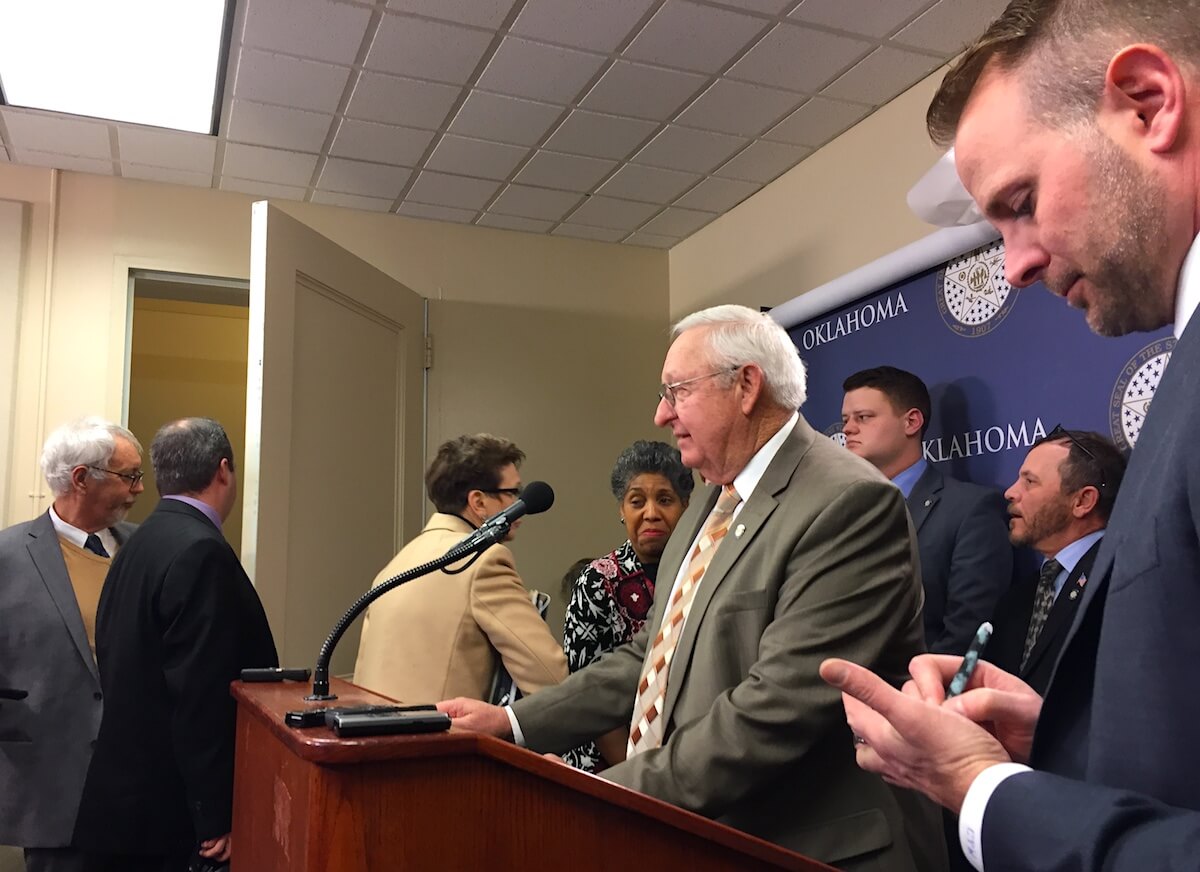
If Phillips defeated Kouplen without running a campaign in 2018, it might be easy to think he need not try particularly hard in their 2020 rematch, especially in a presidential election year when President Donald Trump’s rural popularity is likely to boost GOP turnout.
But Phillips said he is taking nothing for granted.
“In 2018, it was a fluke. I knew that lightning doesn’t strike twice,” Phillips said. “I’ve put about 80,000 miles on my truck in the last year alone driving around my district.”
Still, campaigning during the novel coronavirus pandemic has been difficult, he said, and Kouplen echoed that feeling.
“I, for one, certainly respect the virus. I think it’s definitely something that should have our fullest attention,” Kouplen said. “I’ve not done a lot of actual door knocking because a lot of people don’t want people coming around. I’ve gone to as many functions that communities have had.”
But Kouplen said the district’s traditional pie suppers and other events have been fewer and farther between this year.
“Generally when I go through the communities, if I see someone out, I stop and visit with them and try to social distance while we’re talking,” Kouplen said. “You kind of play it by ear. You have folks who really believe the virus is something to take the utmost concern with, and then you have people who think it’s basically a hoax. So you’re put in a precarious situation when you’re out campaigning.”
Kouplen said he hopes he has made enough phone calls and other connections to give him a shot Nov. 3, despite the potential that people casting “straight party” Republican ballots might again tilt the scales against him.
“I think people will be less likely to vote straight-party ticket this time around. At least I hope that’s the case,” he said. “I hope people at least look at the experience and the qualifications of the candidates and cast their votes accordingly.”











